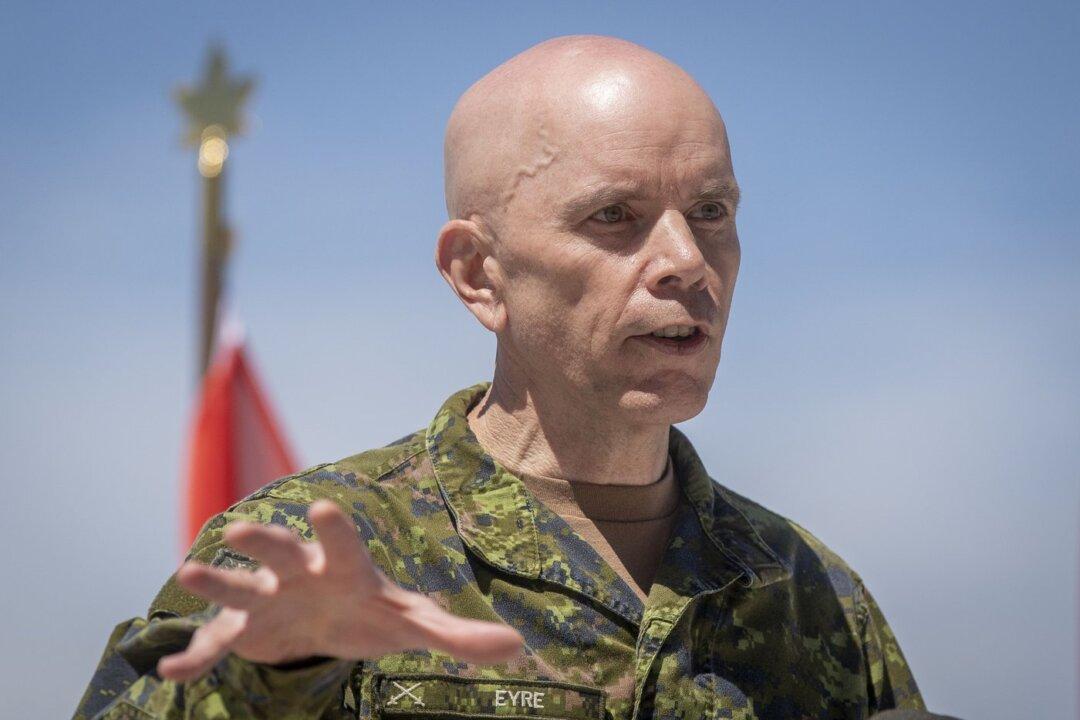General Wayne Eyre will be retiring from his role as chief of the Defence Staff in the summer, the Prime Minister’s Office (PMO) has said.
“I thank General Eyre for his unwavering service to Canada as Chief of the Defence Staff and throughout his remarkable military career,” Prime Minister Justin Trudeau said in a press release on Jan. 12.





